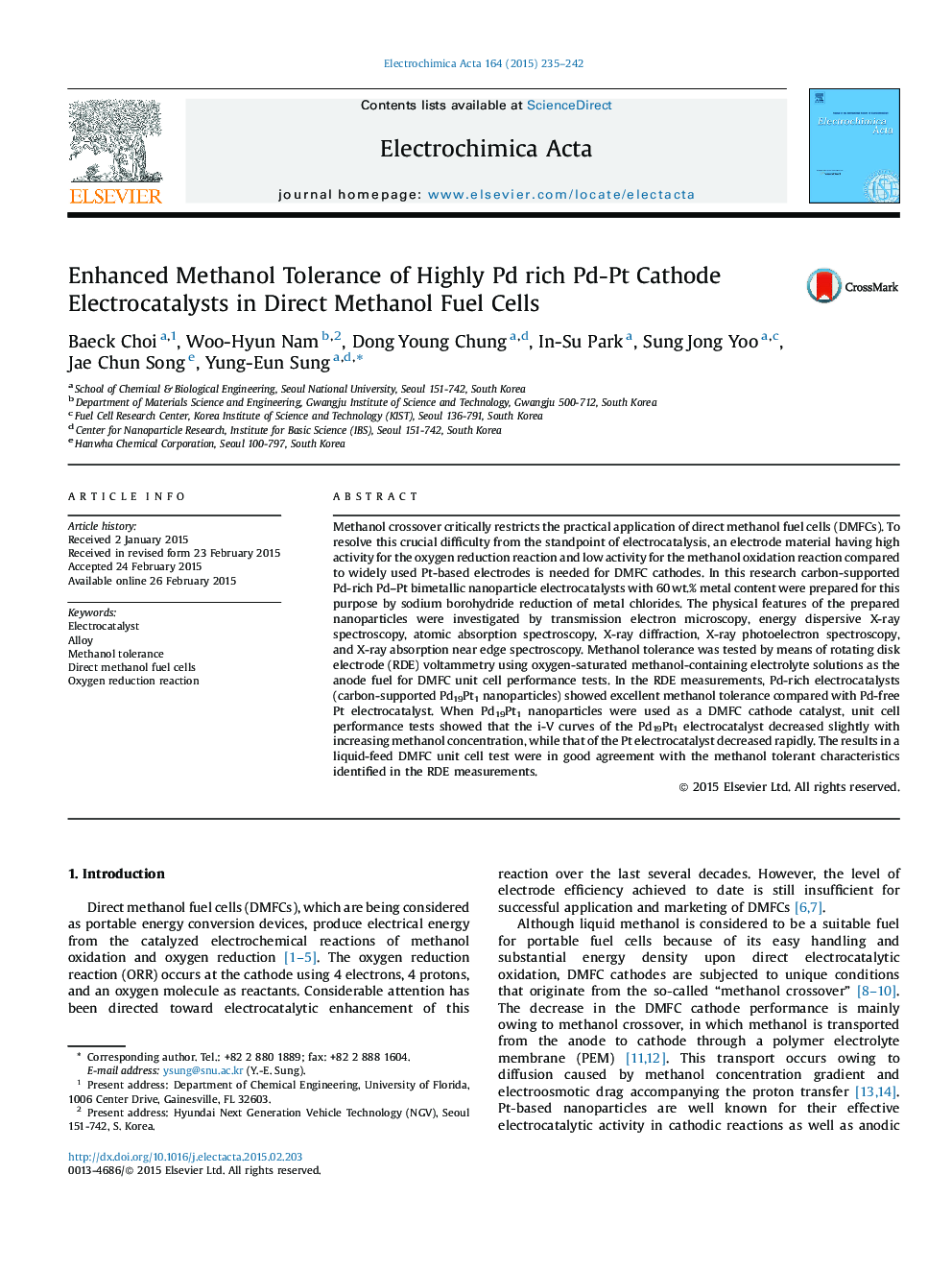| Article ID | Journal | Published Year | Pages | File Type |
|---|---|---|---|---|
| 184297 | Electrochimica Acta | 2015 | 8 Pages |
Methanol crossover critically restricts the practical application of direct methanol fuel cells (DMFCs). To resolve this crucial difficulty from the standpoint of electrocatalysis, an electrode material having high activity for the oxygen reduction reaction and low activity for the methanol oxidation reaction compared to widely used Pt-based electrodes is needed for DMFC cathodes. In this research carbon-supported Pd-rich Pd–Pt bimetallic nanoparticle electrocatalysts with 60 wt.% metal content were prepared for this purpose by sodium borohydride reduction of metal chlorides. The physical features of the prepared nanoparticles were investigated by transmission electron microscopy, energy dispersive X-ray spectroscopy, atomic absorption spectroscopy, X-ray diffraction, X-ray photoelectron spectroscopy, and X-ray absorption near edge spectroscopy. Methanol tolerance was tested by means of rotating disk electrode (RDE) voltammetry using oxygen-saturated methanol-containing electrolyte solutions as the anode fuel for DMFC unit cell performance tests. In the RDE measurements, Pd-rich electrocatalysts (carbon-supported Pd19Pt1 nanoparticles) showed excellent methanol tolerance compared with Pd-free Pt electrocatalyst. When Pd19Pt1 nanoparticles were used as a DMFC cathode catalyst, unit cell performance tests showed that the i-V curves of the Pd19Pt1 electrocatalyst decreased slightly with increasing methanol concentration, while that of the Pt electrocatalyst decreased rapidly. The results in a liquid-feed DMFC unit cell test were in good agreement with the methanol tolerant characteristics identified in the RDE measurements.
